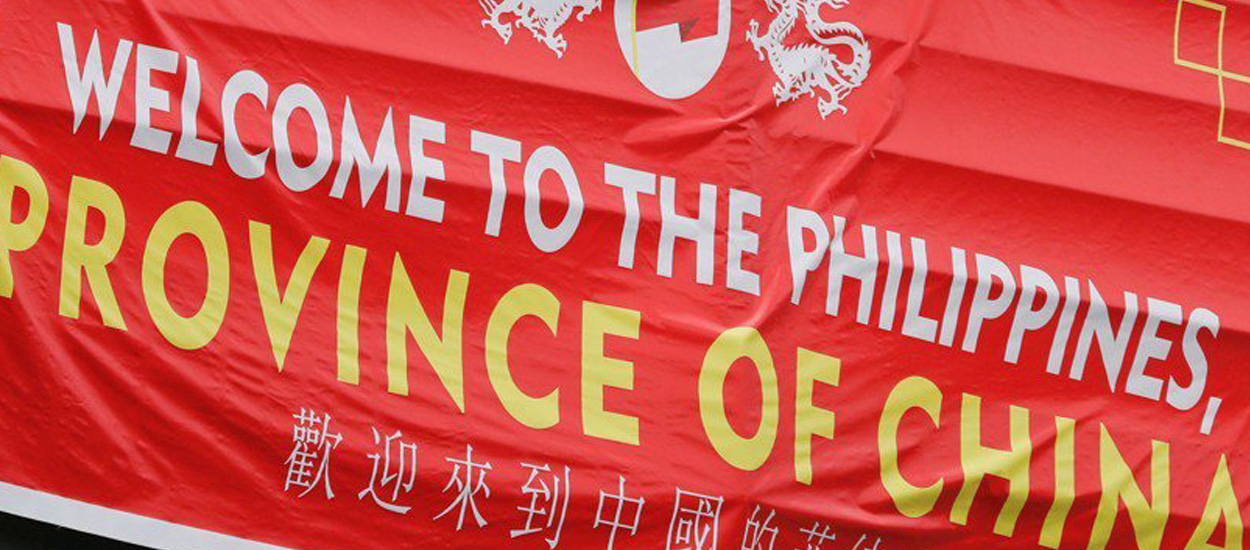Rumor has it that many of the three million Chinese residents that moved to the Philippines recently are using the country’s online casinos to remove money from China, where Internet gambling is illegal.
According to reports, the Philippines has allowed over three million Chinese nationals to move to the country since 2016, with as many as 100,000 people moving to the capital of Manila. The large influx has driven up housing prices and there are reports that it is starting to be cause a strain on some of Manila’s infrastructure. Of the 3 million Chinese residents that moved to the Philippines, approximately 2.5 million were from mainland China, with the others coming from Hong Kong, Macau and Taiwan. For years the relationship between China and the Philippines has been very frosty and migration back and forth was almost unheard of, but Philippine President Rodrigo Duterte indicated he wanted to ease tensions and has welcomed most Chinese nationals that want to move to his country.
According to Bloomberg News, the large influx of Chinese residents took place after Duterte agreed to allow PAGCOR to hand out 50 online gambling licenses to go along with the myriad of land-based casinos that currently operate there. And, new reports are suggesting that the Philippines may increase the number of licenses. According to Bloomberg, Chinese nationals are needed because “while bets are placed remotely, the operators need Chinese speakers in Manila to handle everything from marketing and customer queries to payment processing for overseas clients.â€
But according to a source who works for one of the casinos in the region, it is well known that the large influx has less to do with the ability to work at a casino and more to do with using the online casinos to remove money from China in a quasi-form of money laundering. The source explained:
“Prior to 2017 the Chinese nationals have always used RMB (China’s currency) to pay for offshore investments such as real estate and securities, but in 2017 the Chinese government disallowed the yuan to be used for foreign investments because the Chinese economy has been tanking and the government doesn’t want money being removed in basket loads and further devaluing the yuan. And the Chinese government has been very strict in enforcing it. Several people have been arrested and heavily fined when they are found to be breaking the rule and some have been imprisoned. For that reason, the richer Chinese nationals have been looking for other ways to get their money out. For a while Bitcoin seemed to be an option many nationals wanted to use, which was why you saw the price of the crypto currency skyrocket, but Chinese banks have been put on alert to watch for any transactions that may involve the purchase of bitcoins and bitcoin businesses in China are shut down almost as fast as they open. So, gambling is the only other real method to get money out. Chinese gangs have used casinos around the world for years to launder money, but again the new rules and edicts to border agents and banks to look for large sums of Chinese cash being taken out has made even that method risky and probably unfeasible.

But online gambling is different. In many jurisdictions, it’s pretty much unregulated and it’s possible to deposit with one form of currency and take out a different form of currency, provided you are a resident of that country. Online gamblers all over the world have accounts in $USD, but withdraw funds to their native currency, whether it’s the pound, euro, Canadian dollar or Philippine peso. And that is precisely what a large number of these Chinese nationals are doing with the Philippines.
They deposit money into the offshore casinos with their RMB and it’s effectively unnoticed because they aren’t physically buying anything. The casinos aren’t obligated to provide any information about deposits to a specific entity and the individual deposits are likely kept small enough to be kept under the radar with the offshore casino operator, the banks and the government. Then when they withdraw funds, they have them sent to their Philippine bank accounts, which also raises no red flags because these Chinese nationals now have a Philippine physical address. And again, the withdrawals are likely kept small enough to avoid raising red flags. At that point, because there are no limitations on foreign transactions in the Philippines as there is in China, they can then use the money for any purchases they like, including real estate in major European and North American markets. It’s money laundering lite and the Chinese nationals are using the Philippine banks and PRC (Professional Regulation Commission of the Philippines) as the means for their moving RMB out of China.”
This of course is all unproven, but it certainly wouldn’t be anything new. Chinese residents are known to use casinos both online and land-based to launder money. In an article I wrote last year, a Chinese national and spa owner in British Columbia used other Chinese nationals to gamble with dirty money given to them in $20 increments at the River Rock casino in Richmond, BC and then withdrew the post up money and winnings from the casino in larger bills to make it appear legitimate. Much of that original money was from illicit activities in China. And more recently Dan Bui Shun Jin was arrested at the River Rock casino on suspected money laundering. The RCMP said Jin was suspected of laundering $855 million through Australian casinos and was carrying $75,000 in cash at the time of his arrest. The U.S. also had a warrant out for his arrest for fraud over $1.4 million.
Naturally, if proven true, what the Chinese nationals are doing in the Philippines is far less egregious than the activities at River Rock, but nonetheless it doesn’t change the fact that their main reason for moving has less to do with wanting to work in the Philippines and more to do with the ability to get their money out of China.
Read insights from Hartley Henderson every week here at OSGA and check out Hartley’s RUMOR MILL!
1 comment
















1 Comment
tom
August 29, 2018, 8:49 pmwhy is everything about money laundering
REPLY